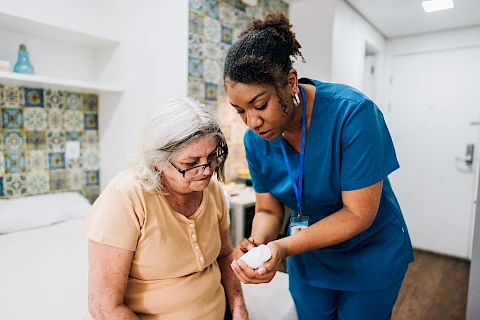
Seniors often require multiple medications to manage various health conditions. While these medications are critical for their well-being, they can also have side effects that can complicate a senior's health situation. It's essential for caretakers and loved ones to understand these side effects and know how to handle them effectively. This article provides valuable insights and practical strategies for managing medication side effects in seniors. We explore various aspects of this vital topic, from monitoring for adverse reactions, communicating with healthcare providers, and making necessary medication adjustments. The goal is to ensure the highest quality of life for our senior loved ones.
Knowing the Medication Side Effects in Seniors
Medication side effects vary from minor nuisances, like drowsiness or dry mouth, to potentially serious health complications. The first step to managing these side effects is understanding them. Knowing what potential side effects can occur and how they might present themselves can significantly improve the chance for early detection and intervention.
The Role of Caretakers in Managing Medication Side Effects
As a caretaker managing medication side effects in seniors is crucial to fulfilling your role. Vigilant monitoring, clear communication, and appropriate response to any adverse reactions are essential to ensuring the well-being of the seniors in your care.
Strategies for Monitoring Adverse Reactions
Knowledge is power when it comes to monitoring adverse reactions. Awareness of each medication's specific side effects and watching for signs and symptoms is crucial. Regular check-ins and health observations can help you spot anything unusual, ensuring proper medical follow-up.
Importance of Communication with Healthcare Providers
Coordinating with healthcare providers is an essential part of managing medication side effects. Regular updates and scheduled check-ups allow for an open line of communication. It's critical to relay any new symptoms or concerns to the healthcare provider as soon as they arise. This communication facilitates prompt attention and adjustments to the medication regimen, if necessary.
Making Necessary Adjustments to Medications
Sometimes, despite our best efforts, side effects can still occur. You may need to adjust the medication dosage or regimen in such cases. However, this needs to be under the direct guidance of a healthcare provider who can make knowledgeable decisions based on the senior's overall health condition and response to treatment.
Tips for Managing Common Side Effects
Caregivers can mitigate common side effects like dizziness, nausea, or fatigue with specific strategies. For example, encouraging seniors to stand up slowly can help reduce dizziness, while having small, frequent meals can minimize feelings of nausea. Individualized care is critical; what works for one person may not work for another.
Promoting Medication Safety in Seniors
In addition to management strategies for medication, you also need to realize that prevention is better than a cure. Promoting medication safety can prevent many side effects. These safety measures include ensuring seniors take their medications as prescribed, avoiding drug interactions, and promoting healthy lifestyle habits that can maximize the benefits of their medications.
We Want to Help
You can manage medication side effects in seniors by understanding the side effects, closely monitoring for adverse reactions, and maintaining open communication with healthcare providers. The goal is not just to treat illness but to enhance the quality of life.
If you reside in Lake Elsinore, Menifee, Perris, Nuevo, or Homeland and need assistance caring for seniors, don't hesitate to contact us at Senior Helpers Menifee Valley. We would love to discuss our services for seniors and their caregivers, such as Personal Care and Chronic Disease Care.